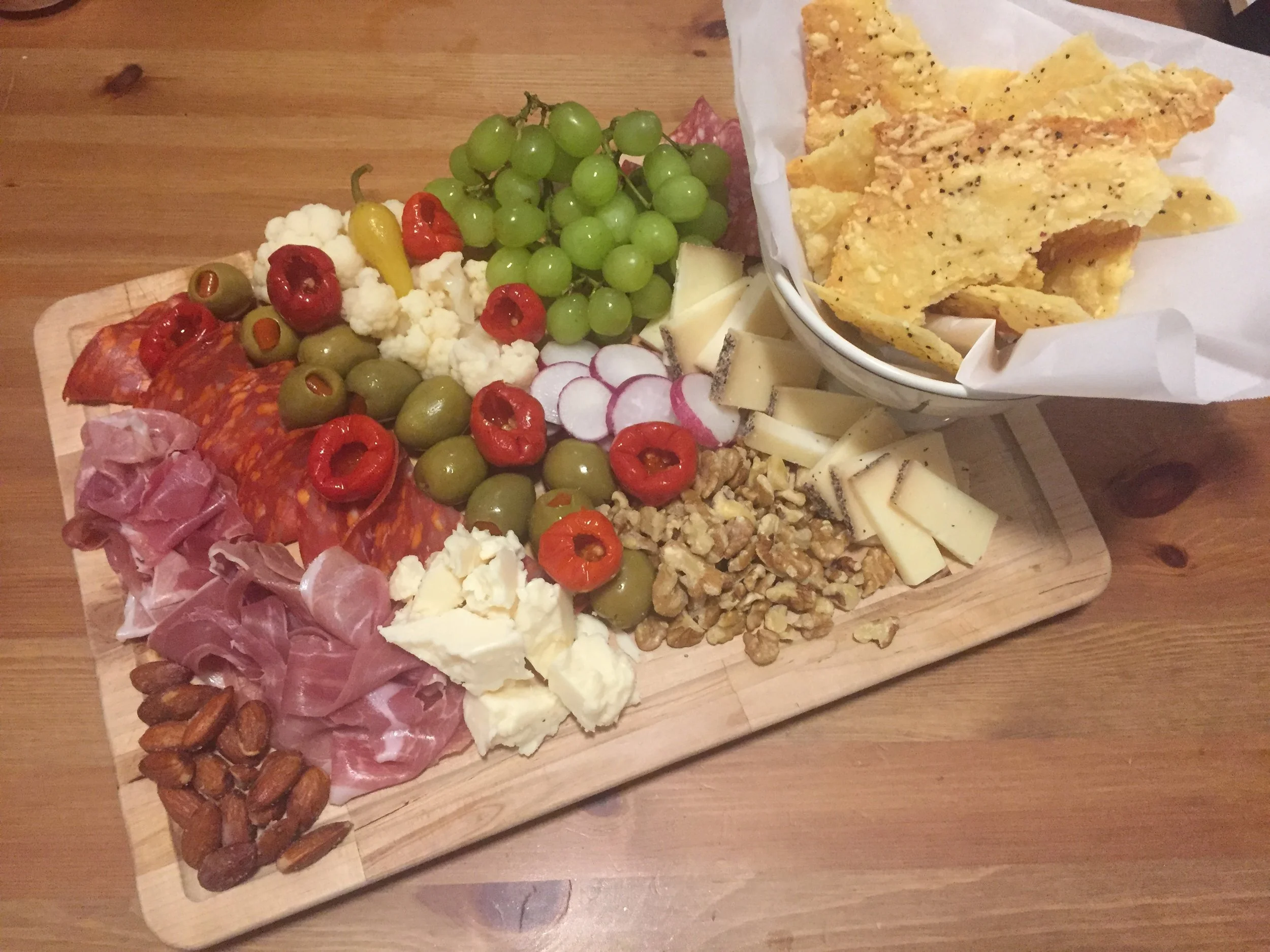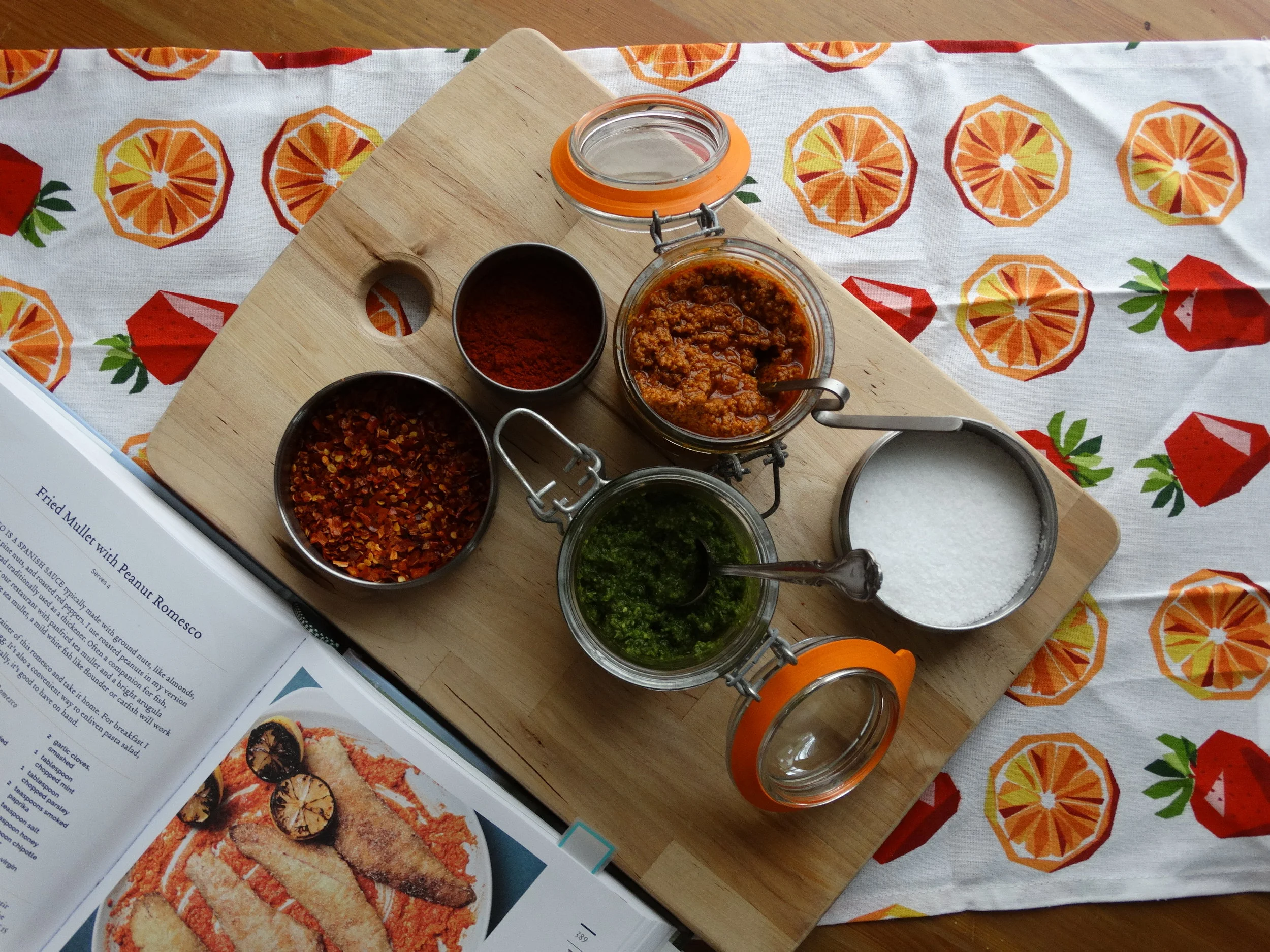Cookbook Spotlight: Taming the Feast by Ben Ford (+ some of my favorite campground cooking tips)
"Taming the Feast" by Ben Ford is focused on adventurous cooking via rugged outdoor feasts. It's one of the books I love to look at for inspiration, particularly before I go camping. I never went camping as a kid, but I was lucky enough to grow up very sandy in southern California. We went to the beach regularly and some of my favorite moments were beach bonfire nights. Back then, I could make a dinner out of hot dogs, tortilla chips, bean dip, and smores materials, and the only cooking tools I needed were some untwisted wire hangers for marshmallow roasting. Over the years, my menus have become a bit more ambitious, and I've discovered the joy of having the perfect equipment on hand for an outdoor feast. Whether on a beach or at a campground, cooking in the outdoors has become one of my favorite activities. Plus, there's nothing like offering the people at the campsite next to you a little neighborly sampling of your 4 course outdoor meal and seeing their surprised faces.
Ford's cookbook guides you through everything from the timeline of an outdoor pig roasting to how to build a cinder block pit, with recipes in between. It's a unique cookbook to add to your collection and I'd definitely recommend it if the idea of an outdoor feast intrigues you. If you're thinking about planning a campsite feast, here are some tips:
Invest in a camping stove: A classic propane camping stove can be super handy when you're trying to make multiple menu items at once. While you're cooking your breakfast over the campfire, your camping stove can be heating up your water for coffee or tea. Plus, a camping stove gives you the extra burner space that can help you finish all your menu items around the same time.
Bring a few good non-stick pans and a seasoned cast-iron skillet: It's helpful to have a variety of pots and pans including the lightweight camping pans sold at outdoor stores. However, a set of regular non-stick pans dedicated to your camping kit will go a long way to help you cook everything for a crowd and get it easily cleaned up. It's a bonus if the non-stick pans are oven-safe, so you don't have to worry about handles melting and you can also utilize them over the fire. A cast iron skillet is also helpful since it's totally heat-safe-- you can throw it on top of the fire and cook just about anything.
Remember the essentials: When you're packing for a trip, you'll likely focus on bringing your large menu items-- that steak you're excited to throw over the fire or the potatoes you can't wait to cook up for breakfast. But don't forget to bring everything you'll need to cook with from the kitchen: salt, pepper, spices, cooking oil, foil, saran wrap, paper towel, etc. Keep a tupperware of all the non-perishable dry goods you always take with you so it's ready to go.
Foldable Bucket: Keeping a clean campsite is essential, and you'll enjoy the trip more if you make this process as easy as possible. Folding buckets like this one are super handy for cleaning up at the end of your meal. And don't forget the dish soap!
Sharp Knives and Cutting Boards: There's no need to go camping with an old dull knife, which will only make cooking in the elements more challenging. Bring a good knife for chopping and invest in some sharp paring and utility knives for everyday use. I recommend investing in individual knife covers for each knife for easy transport. Sharp knives, along with a few sturdy cutting boards, will be some of the most useful items in your cooking kit.
Essential Tools: A nice set of longer tongs can be handy for cooking things over the fire. It can also be helpful to have a few hot pads or oven mitts around for handling hot items.
Measure ahead: If your menu involves measuring ingredients, I'd recommend measuring and portioning items at home so you can focus on simply executing the menu when you're at the campsite. If you're planning on cooking the first night you arrive, I recommend pre-chopping vegetables and doing as much prep as you can-- this will give you time to get settled, put up your tent, and unpack while still giving you time to enjoy the evening.
Get to know your fire: Understanding the heat of a campfire is a learning process, and your campfire will be way hotter than the burners on your range at home. Know that you will need to move items around on an open fire to regulate heat, and even then you might end up with some extra charring. Don't be afraid to experiment and learn as you go.
Learn from your mistakes: Cooking at a campsite will never go 100% as planned-- maybe you're having trouble getting your fire started, dealing with inclement weather, or maybe you forgot an essential kitchen item. Cooking outdoors is about thinking on your feet and applying lessons learned to make the next meal that much better. And, it never hurts to have a bit of salami and cheese in the ice chest just in case it is pouring down rain and you need some emergency rations. Remember, cooking mishaps can be a bummer in the moment, but they make for great stories later on.
What are your go-to outdoor cooking tips? If I left out an essential tip, please drop me a line and share.






